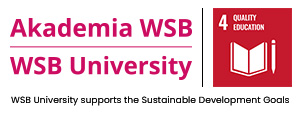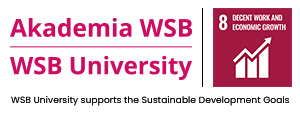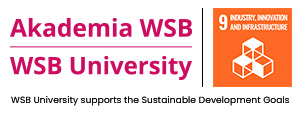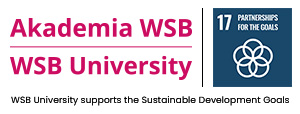




The study visit was aimed at strengthening cooperation between WSB University and the University of Rio Grande do Sul in Brazil in the fields of cross-border research, territorial and inter-organizational cooperation.
As part of the visit, WSB University researchers participated in a congress discussing cross-border cooperation in the borderlands of Brazil, bringing the participants of the congress closer to Polish-Czech cooperation, which is carried out within the framework of Euroregions operating in our borderland.
The research visit also included a meeting at the Rio Grande do Sul Governor's Office. Main topic of the meeting was cross-border cooperation. The transfer of the model of Euroregional cross-border cooperation to the Brazilian-Argentinian borderland, in cooperation with the University of Porto Alegre in Brazil, is one of the research agendas carried out by the WSB University's Institute for Cross-Border and Inter-Organizational Cooperation.
As part of the visit, Joanna Kurowska-Pysz, Ph.D., Prof. AWSB, and Lukasz Wróblewski, Ph.D., Prof. AWSB, also participated in a congress and seminar with doctoral students at the Federal University of Porto Alegre. There was also a meeting with doctoral students at Paraná State University, implementing a large cross-border project on the border of Brazil, Argentina and Paraguay. The main goal of the project is, among others, to establish a permanent platform of cooperation between the three border cities: Foz do Iguacu (Brazil), Puerto Iguazu (Argentina) and Ciudad del Estate (Paraguay), and to conduct regular scientific research to support, among others, the sustainable development of tourism in these cities. Members of the group were very interested in the concept of the Polish-Czech-Slovak EuroInstitute operating in Cieszyn, as well as in cross-border projects supporting the development of tourist, cultural offerings in Cieszyn and Czech Cieszyn.
The next day was devoted to meetings and study visits to the borderlands of Brazil, Argentina and Paraguay. In the morning, a meeting was held at the Foz do Iguacu City Hall with the Director of the Department of Tourism and Strategic Projects. Discussions included key cross-border transboundary products - the IGUACU Waterfalls and the ITAIPU Hydroelectric Plant on the Parana River. This hydroelectric dam, the largest (after the Three Gorges Dam in China) in the world, was built right on the border between Brazil and Paraguay. This was followed by a meeting with the Director of the CODEFOZ Secretariat. CODEFOZ is a cross-border chamber of industry and commerce that, among other things, is involved in the implementation of important cross-border infrastructure projects, and also runs business incubators in Brazil, Argentina and Paraguay.
The last two days on the border of Brazil, Argentina and Paraguay were spent visiting all three cross-border cities (Foz do Iguacu, Puerto Iguazu and Ciudad del Este). On Saturday morning, the researchers visited the Cross-Border Projects Incubator in the city of Ciudad del Este. This cross-border city (the second largest in Paraguay) has developed thanks to the duty-free zone located here, which generates about 60% of the country's GDP. Hence, the city is sometimes referred to as "South America's largest store." Among other things, the researchers had the opportunity to look at how the famous "MONALISA" operates - the largest duty-free shopping center in the city. In the evening we visited "Marco das Tres Fronteiras" in Foz do Iguacu - the place where the borders of Brazil, Argentina and Paraguay meet. Sunday, on the other hand, we spent exploring one of the world's most recognizable cross-border tourism products - Iguacu Falls.
Visiting the cross-border region of Brazil, Argentina and Paraguay was both extremely valuable academically and an excellent opportunity to learn about the culture and nature of this unique cross-border region. We extend special thanks to Professor Aldomar Rückert of the Federal University of Rio Grande do Sul for invitation and planning the research visit.




